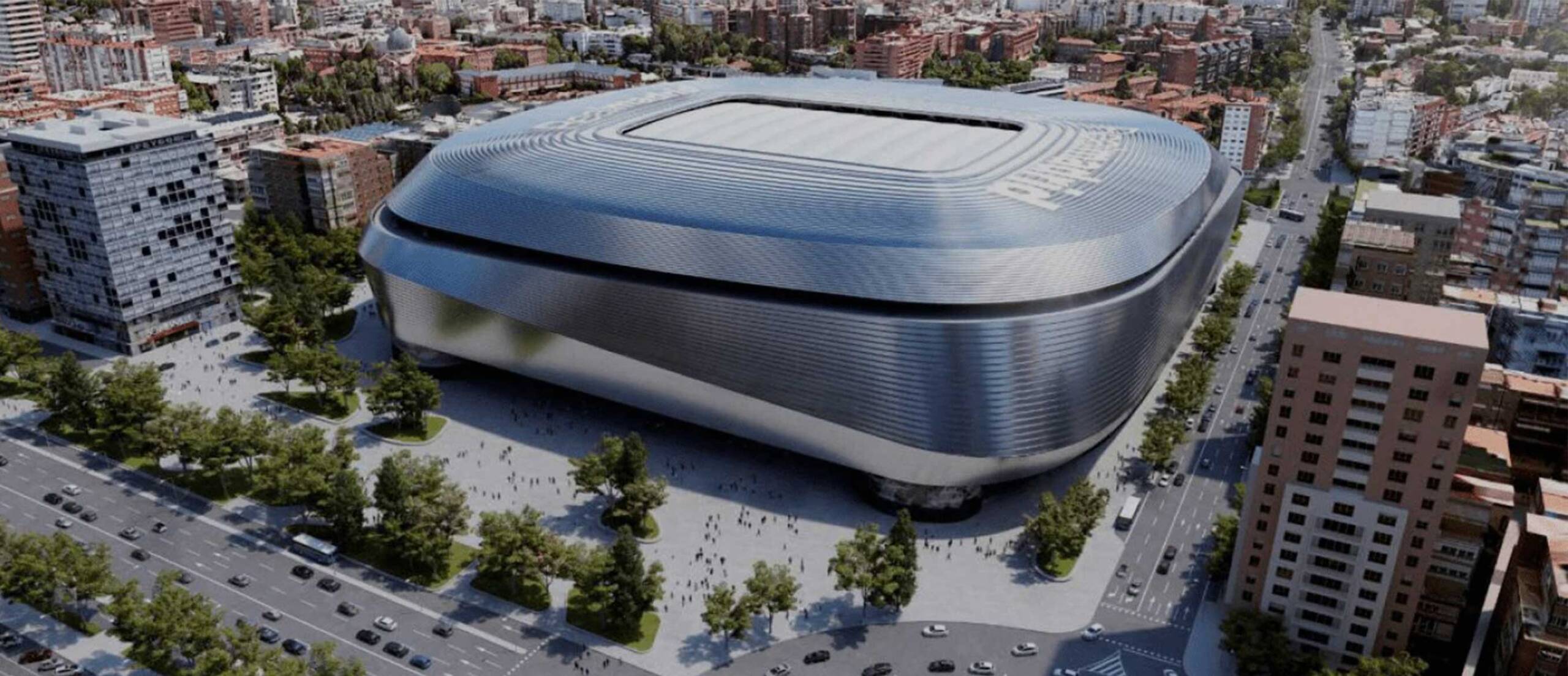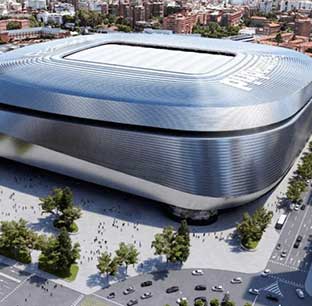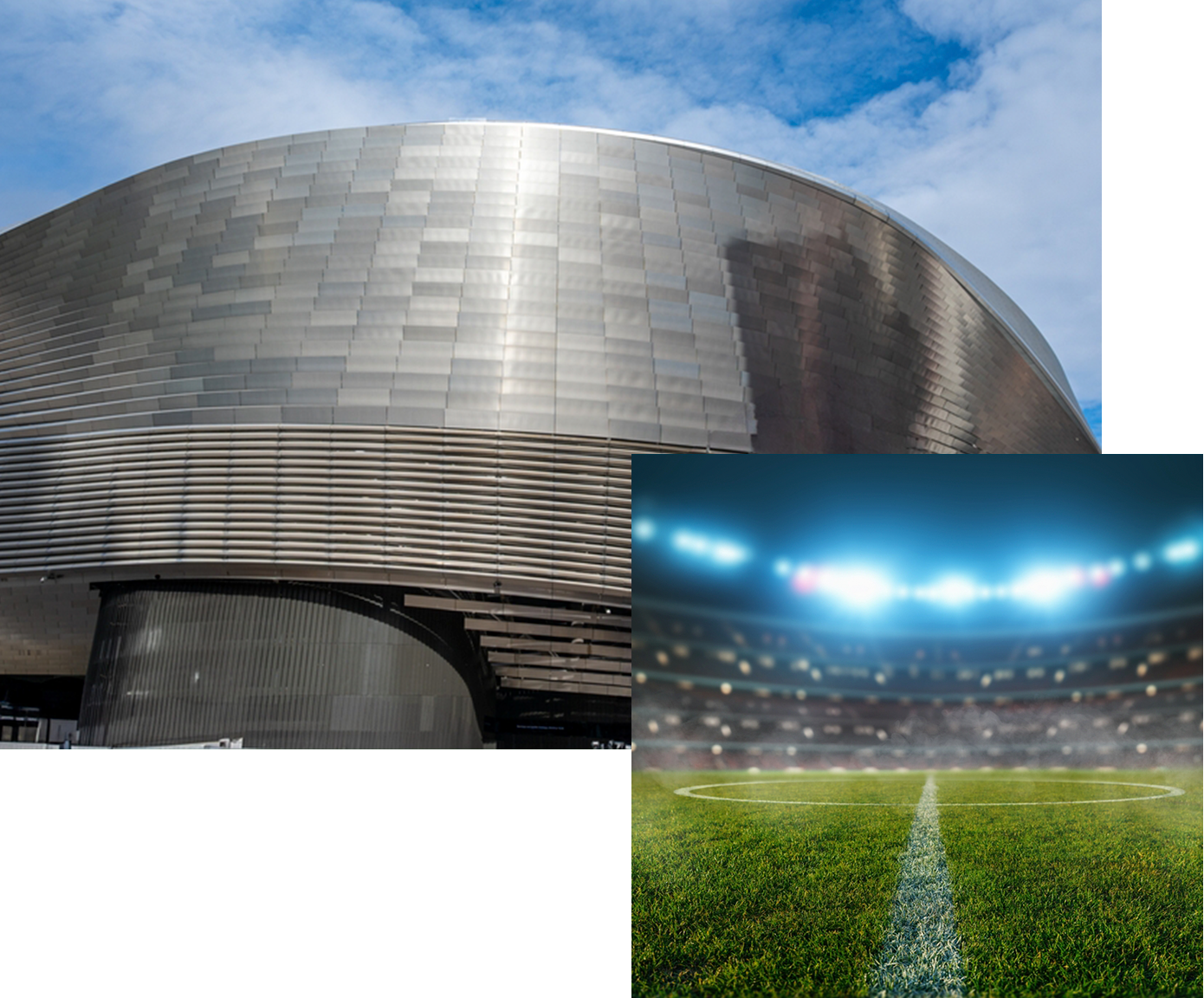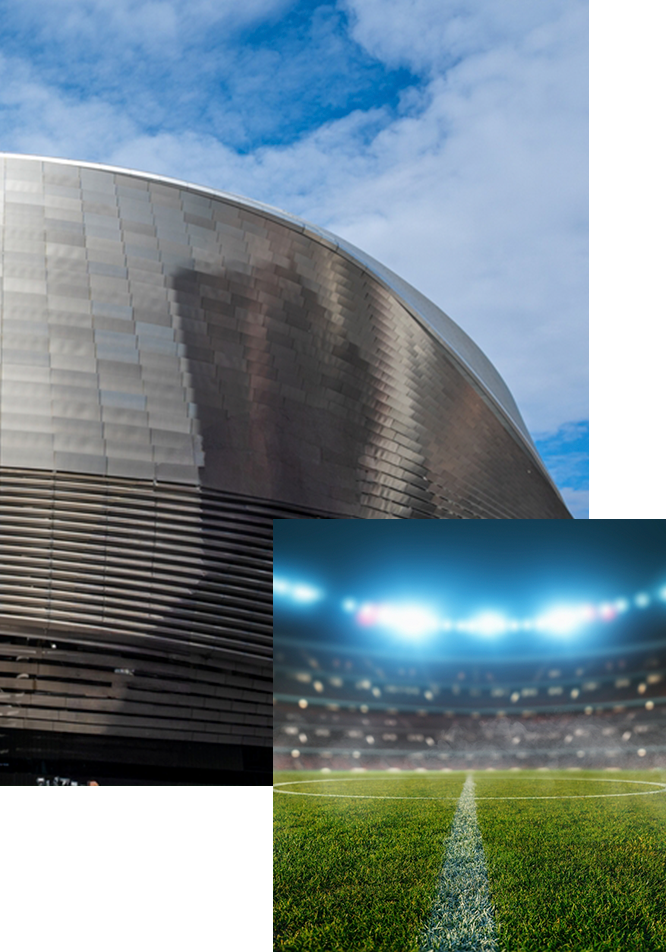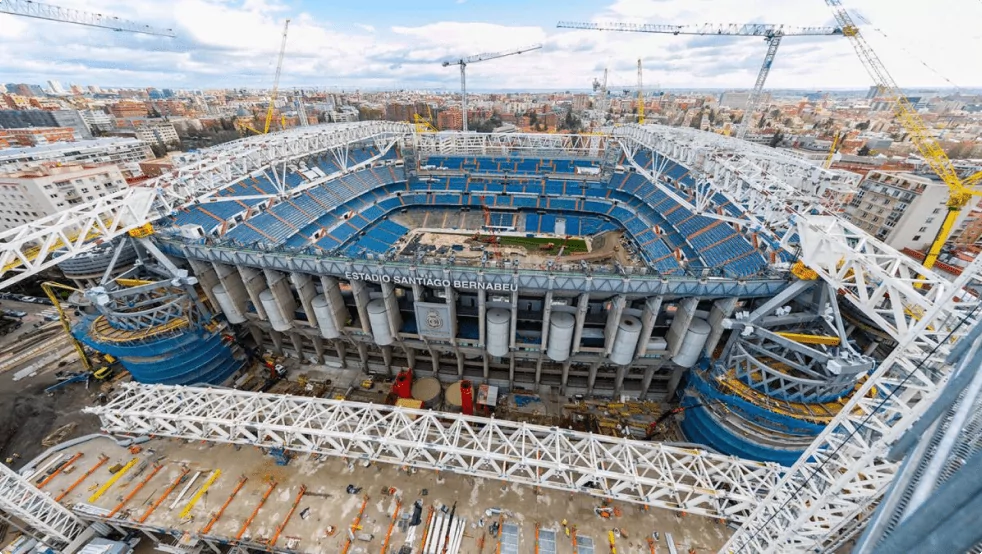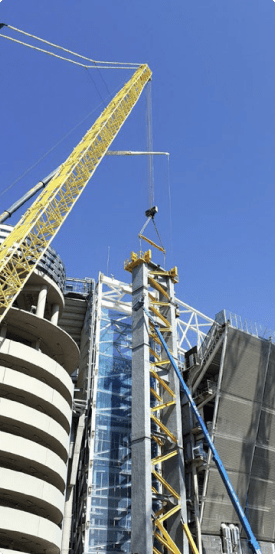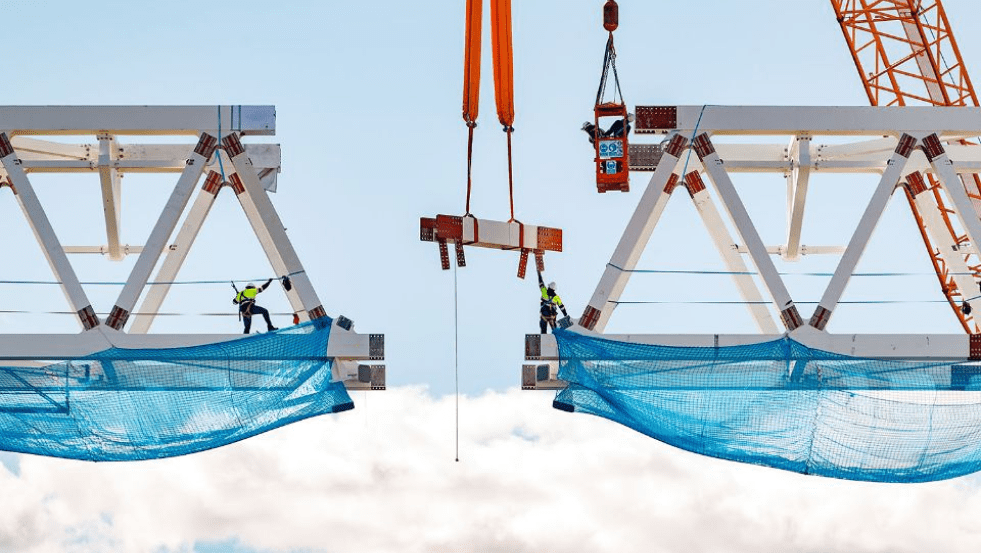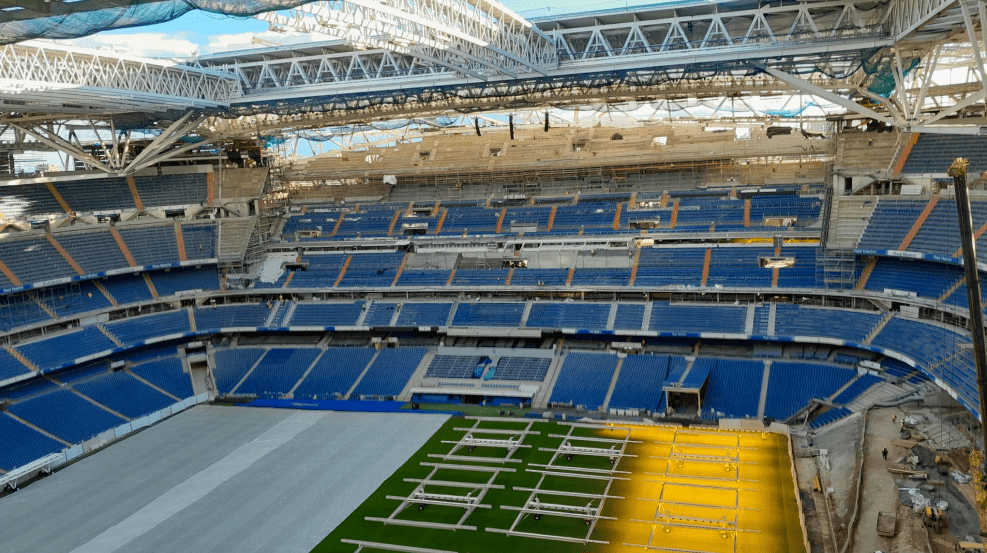Challenge
The Santiago Bernabéu stadium, home to the world-renowned Real Madrid football club, has a rich history of on-field success. However, despite this pedigree, the stadium was in need of a major upgrade. Real Madrid sought a solution that would provide cutting-edge amenities and enable year-round events, all while allowing existing sports fixtures to continue as scheduled. This is where the Santiago Bernabéu redevelopment project comes in.
To convert the old 1947 infrastructure into a modern digital stadium, the club proposed a complete renovation, including the development of the latest sports and audio-visual technologies. The new stadium includes a retractable roof, a retractable pitch, a 360-degree video scoreboard, and a surround ‘skin’ of steel bands to allow images to be projected onto the stadium’s facade.
In addition to the technological advancements, the project would add 150,000 square metres of commercial space in the heart of the capital’s financial centre. The materials in the new roof and facades are composed of an environmentally sustainable stainless steel material, an example of a circular economy design that is one hundred percent recyclable and serves several functions – including reducing noise and light pollution. It also includes a new skywalk with stunning 360-degree views. This “skin” on the retractable roof will also act as an insulator and temperature regulator, reducing reliance on 1,300 heaters in Winter, which will be replaced by electric solar-powered models.
The most impressive feat of the Santiago Bernabéu redevelopment project was the successful implementation of a retractable pitch system, which had never been used in a football stadium before. The system consists of rectangular turf divided into trays that can be stored in a hypogeum located underneath the stadium. This innovative solution allows for the freeing up of the field’s surface, providing 10,000 square meters of space for Real Madrid’s business area to host events and concerts while also protecting the football playing surface.
Once completed, the Santiago Bernabéu stadium will be a game-changer, setting the standard for modern football stadiums worldwide. It will be a testament to Real Madrid’s commitment to excellence, on and off the field, and will solidify their position as one of the leading and most innovative football clubs in the world.
Our role
Ayesa was responsible for overseeing the design, project management, construction, and execution of the Santiago Bernabéu Stadium redevelopment project. A team of over 20 technicians with diverse specialties worked on-site to ensure the project's success.
As the project manager and integrator, Ayesa ensured that the stadium’s activities and venues, including matches, museum exhibits, restaurants, and other events, were not affected by the construction programme, which formed the main challenge during the 4-year project timeline. The project site’s location on Paseo de la Castellana has presented additional complexities, with a railway tunnel connecting Atocha and Chamartín stations passing below, a subway parking lot bordering the site, and multiple high voltages, gas, sewage, and telecommunications lines running nearby.
Value add
Multidisciplinary expertise: Ayesa offers consulting, verification, and supervision services in a range of areas, including engineering, architecture, urban planning, MEP installations, as well as audiovisual and telecommunications. This allows for a holistic approach to the project and ensures that all aspects of the work are coordinated efficiently.
Integration of planned and new elements: Ayesa has helped to integrate the interventions and elements added to the original project, both from the technical and planning point of view. This ensures that the work is cohesive and that all elements are seamlessly integrated.
Efficient implementation: Ayesa has been instrumental in the efficient selection of systems and installations, as well as the smooth implementation of different commercial operators. This ensures that the project is completed in a timely and cost-effective manner.
Control and security: Ayesa has provided technical and planning expertise to ensure that Real Madrid Football Club maintains control of the project and that structural solutions are secure. This helps to mitigate risks and ensure that the project is completed successfully.
Working with Ayesa guaranteed that the redevelopment of the Santiago Bernabeu Stadium into a “digital stadium of the future” was completed to world-class standards using sustainable materials and approaches in a cost-effective and efficient manner. This landmark project is now featured in the National Geographic documentary Megastructures: Real Madrid Stadium, highlighting its scale, complexity, and innovation.
